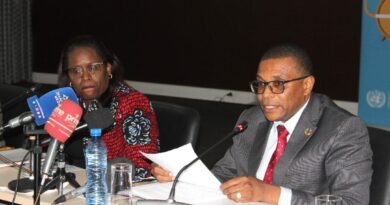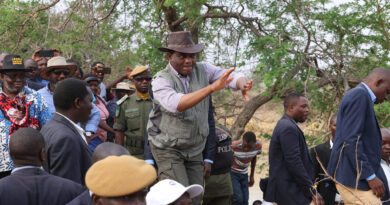Slow Progress in Africa’s Food Systems Transformation Highlighted at Annual Stocktake Event
Despite ambitious commitments made during the 2021 UN Food Systems Summit (UN FSS), African nations are grappling with slow progress in transforming their food systems.
Hailemariam Dessalegn, Chair of the AFS Forum Partners Group and former Prime Minister of Ethiopia, emphasized this during the 2023 stocktake in Rome, Italy, noting critical gaps in financing, climate resilience, and support for small-scale farmers.
Last year’s stocktake revealed that many countries had started developing implementation strategies but lagged in tangible outcomes. The urgent priorities identified by African governments—financing, climate adaptation, and empowering small-scale farmers—remain underaddressed.
With over 20% of Africa’s 1.2 billion people experiencing hunger and 55 million children under five years old suffering from stunting, the continent’s food insecurity crisis is exacerbated by rapid population growth and rising youth unemployment.
Dessalegn highlighted the need for significant infrastructural investments to bridge the gap between farmers and markets. He called for the expansion of road networks, modern market facilities, and cold-chain storage solutions to reduce post-harvest losses and support fair pricing for farmers.
“These infrastructural investments are foundationally government functions but could be accelerated through support from development partners and the private sector,” he stated.
Africa’s youthful population is viewed as a vital asset in driving food system transformation. With 60% of the population under 25 and one-third aged between 15 and 34, leveraging the energy and innovation of young people is crucial for increasing agricultural productivity and market access.
Climate change, identified as both a cause and consequence of food system challenges, remains a critical focus. Agriculture contributes 12% of global greenhouse gas emissions, but practices like agroforestry and soil sequestration can mitigate climate impact.
Dessalegn urged stakeholders to push for proper climate financing protocols and address agriculture’s climate implications.
The upcoming Africa Food Systems Forum (AFS Forum) in Kigali will address these issues, gathering global leaders from various sectors to review progress and strategize future actions.
This year’s forum, themed “Innovate, Accelerate and Scale: Delivering Food Systems Transformation in a Digital and Climate Era,” will focus on innovations, best practices, and investments needed for transformation, with an emphasis on youth and women leadership.
The 2024 AFS Forum, scheduled from September 3-6, follows the Africa Fertilizer and Soil Health Summit in Nairobi and precedes the 29th Climate Change Convention (CoP29) in Baku, highlighting the interconnectedness of soil health and climate goals in achieving food system transformation.



